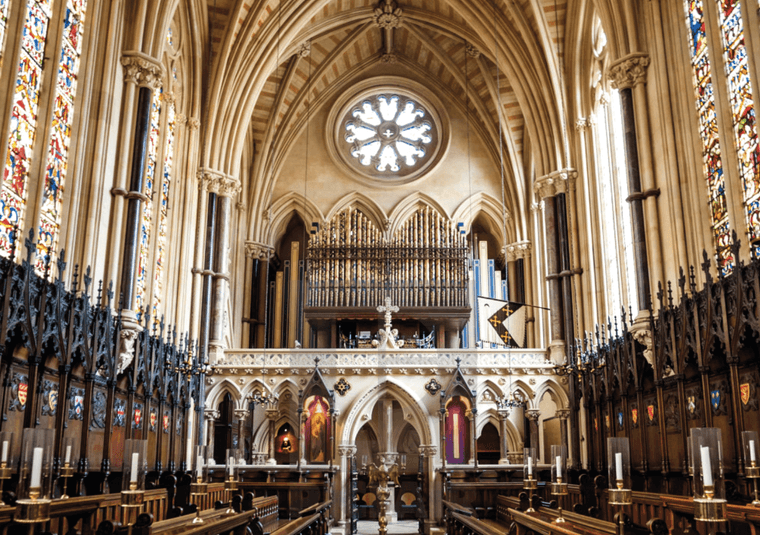Kodály Missa Brevis
and Britten Rejoice in the Lamb
Tickets £14

In May this year we commemorated the 80th anniversary of VE Day that marked the ending of the Second World War in Europe. Inspired by this important milestone, we have programmed two major works for chamber choir composed in the shadow of WW2 for the concert in Exeter College Oxford on 14 June 2025.
Kodaly was hiding with his wife in the vaults of Budapest Opera from late 1944 as Russian and Romanian forces besieged the city when he wrote the Missa Brevis . It was tried out in 1945 by singers from the Opera House (accompanied by harmonium) there with a background of gunfire. The gestation may have been desperate; the music is intense and full of life force.
Britten was a conscientious objector, and spent the early war years in America. He returned in April 1942, and Rejoice in the Lamb was commissioned the following year by the energetic Walter Hussey. The text, by the incarcerated poet Christopher Smart, was carefully chosen – God is worshipped through a myriad of creatures and creation – and wonderfully set by Britten resulting in perhaps the most successful cantata of the Twentieth Century.
From a major conflict of our own time we have included the delectable Three Alleluias by Valantin Silvestrov. Silvestrov was born in and lived in Kyiv (Ukraine) until 2022 when he fled to Germany following the Russian invasion. His intensely beautiful music owes something to Poulenc (“part monk, part guttersnipe” – implying that a certain loucheness and a very human fervour infuses the best of his music for the church), combined with a conscious melodic approachability which has even extended to “Kitsch music” – in the sense of taking the trivial seriously. Around these tunes the choir creates an aural halo: a beautiful and charmingly fresh soundscape.
Kodaly’s Esti dal sets a text believed to be the “evening song” of a young soldier fighting for the Austrio-Hungarian Empire in the First World War. Finding himself behind enemy lines, he takes refuge in the woods and prays to God for safe shelter, and to survive the night.
Finally Even when he is silent is a setting by Kim André Arnesen of a text found written on a wall in a concentration camp in 1946. The text is a metaphor for hope; the music is made up of contemporary cluster chords familiar to all who love the music of Eric Whitacre or Morten Lauridsen.
Wheelchair Spaces
If you require a wheelchair space for this event, please call 01865 305 305 or email boxoffice@oxfordplayhouse.com for further assistance.






